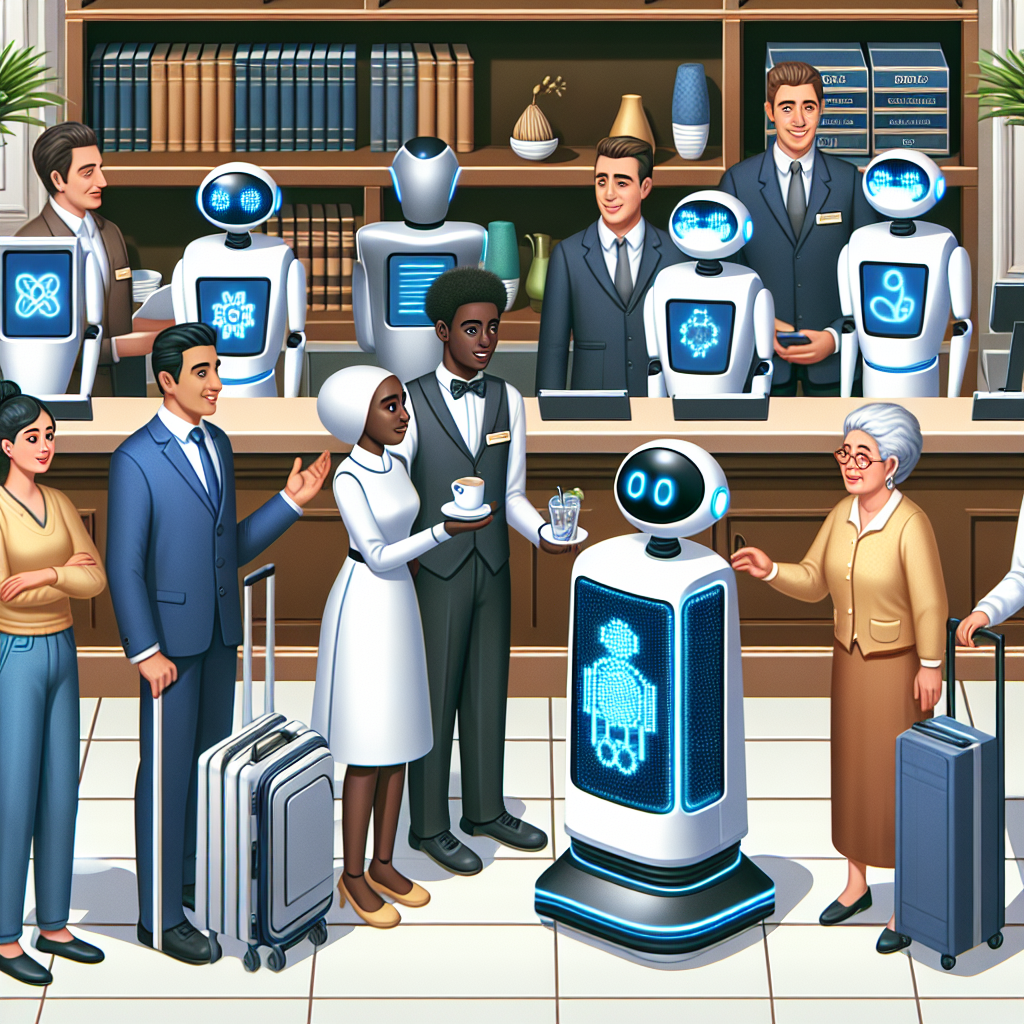In recent years, the hospitality industry has undergone a significant transformation due to the integration of artificial intelligence (AI) technologies. AI has been implemented in various aspects of the hospitality sector, from booking services to guest interactions, to enhance the overall customer experience. One of the key areas where AI has made a significant impact is in personalized guest experiences and customer satisfaction.
AI technology has enabled hotels and other hospitality businesses to gather and analyze vast amounts of data about their guests, allowing them to tailor their offerings to individual preferences. This level of personalization goes a long way in enhancing the guest experience and ultimately leads to higher levels of customer satisfaction.
One of the key ways in which AI is used to personalize guest experiences is through the use of chatbots and virtual assistants. These AI-powered tools can interact with guests in real-time, answering queries, providing recommendations, and even assisting with bookings. By using natural language processing and machine learning algorithms, chatbots can provide a personalized and efficient service to guests, leading to a more satisfying experience.
AI is also being used to personalize the booking process for guests. By analyzing data on past bookings, preferences, and behavior, AI algorithms can predict what kind of accommodation, amenities, and services a guest is likely to be interested in. This allows hotels to tailor their offerings to individual guests, providing a more personalized booking experience.
Another way in which AI is enhancing personalized guest experiences is through the use of facial recognition technology. Hotels are using AI-powered facial recognition systems to identify guests as they enter the premises, allowing for a more seamless and personalized check-in process. This not only saves time for guests but also allows hotels to provide a more personalized welcome, such as greeting guests by name or offering them their favorite drink upon arrival.
Furthermore, AI is being used to personalize the in-room experience for guests. Smart room technology powered by AI can adjust lighting, temperature, and entertainment options based on individual preferences. For example, if a guest prefers a cooler room temperature or a particular type of music, AI can learn these preferences and automatically adjust the room settings accordingly.
Overall, the impact of AI on personalized guest experiences in the hospitality industry is significant. By leveraging AI technologies, hotels and other hospitality businesses can provide a more tailored and efficient service to their guests, leading to higher levels of customer satisfaction.
FAQs:
Q: How does AI improve personalized guest experiences in the hospitality industry?
A: AI improves personalized guest experiences by analyzing data on guest preferences, behavior, and past interactions to tailor offerings to individual guests. This can include personalized recommendations, efficient booking processes, and in-room customization.
Q: What are some examples of AI-powered tools used in the hospitality industry?
A: Some examples of AI-powered tools used in the hospitality industry include chatbots, virtual assistants, facial recognition technology, and smart room technology.
Q: How does AI impact customer satisfaction in the hospitality industry?
A: AI impacts customer satisfaction by providing a more personalized and efficient service to guests, leading to higher levels of customer satisfaction. By tailoring offerings to individual preferences and providing a seamless experience, AI can enhance the overall guest experience.
Q: Are there any privacy concerns associated with the use of AI in the hospitality industry?
A: While AI technologies can enhance personalized guest experiences, there are some privacy concerns associated with the use of facial recognition technology and data collection. Hotels must ensure that they are transparent about how guest data is being used and stored to address these concerns.

